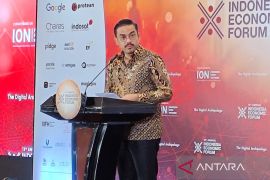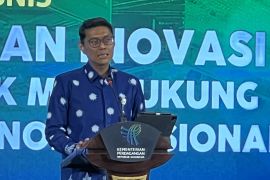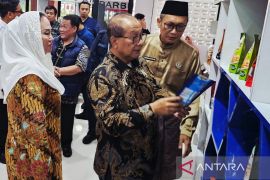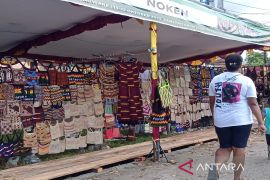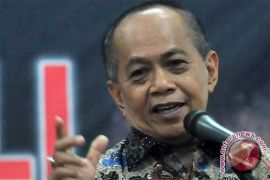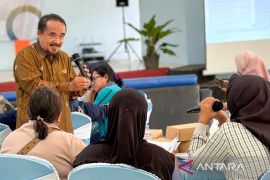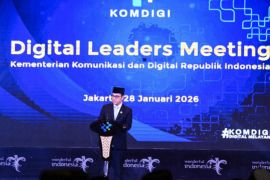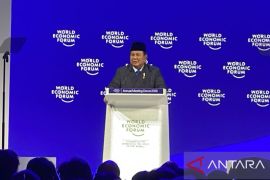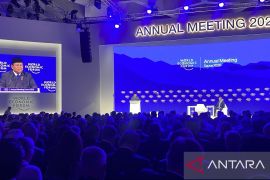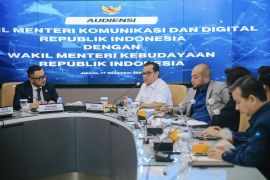The three approaches are digital infrastructure development, digital training stimulus, and digital proficiency reinforcement.
"First is infrastructure development, which is known as the three layers, namely the backbone, the middle mile (the use of satellite technology), and the last mile (developing base transceiver stations or BTS)," Setiadi said.
The minister made the statement at a discussion with marketplaces that support UMKM in South Jakarta on Wednesday (Sept 13).
The second approach is to strive for stimuli in the form of training or accompaniment to support the transition of UMKM from conventional to digital.
He explained that the third approach is in the interest of encouraging the capacity and role of UMKM in the national economy.
According to the minister, a telecommunications infrastructure is built to increase the use of digital technology in every aspect of economic activity in society and UMKM.
With equitable digital infrastructure, society can use the digital ecosystem productively and provide support for its development.
"One of Kemenkominfo’s tasks is to strengthen digital infrastructure. It is impossible for digitalization to exist if the infrastructure does not form," the minister remarked.
"The government continues to build and encourage the optimization of the national telecommunication infrastructure to make it better in quality and more equitable," he remarked.
Minister Setiadi stated that Kemenkominfo also has a program to develop local producers’ capacity in order to encourage quality improvement for UMKM actors.
Through the program, the government is striving for stimulus and adjustment facilitation for UMKM’s business transition to a digital space.
"Right now, the main pillar for our national economy is digital technology, and we encourage UMKM to be digitally literate, even using digital technology to increase their sales and product quality," he stated.
Minister Setiadi explained some steps taken to develop local UMKM producers’ capacity. Kemenkominfo also involves several stakeholders to accompany about 30 million UMKMs that need to enter the digital ecosystem.
"First, the acceleration of infrastructure development has to be equitable, including for the 3T (frontier, outermost, and least developed regions)," he emphasized.
"Second, the training to make a business registration number (NIB) and accompaniment in halal certification. With halal certification, it is easier to be accepted by the market. Third, the utilization of independent online shop applications, BumDes Smart for local UMKMs and village-owned businesses (BumDes) in 3T regions," he added.
Furthermore, he stated that Kemenkominfo specifically conducts digital technology adoption training and accompaniment for 30 thousand UMKM actors in the processing sector in 15 prioritized regions.
Apart from ensuring the fulfillment of supporting infrastructure development, the government continues to encourage UMKM actors to be more adept at utilizing business digitalization.
"This digital technology adoption program has been launched since last year. The purpose is to empower UMKM through the improvement of digital technology adoption in the supply chain in 15 prioritized regions," he remarked.
Meanwhile, on the consumer’s side, the government has a Proud of Indonesian-Made National Movement (Gernas BBI) program that is hoped to support digital literacy for business actors and increase the prestige of consuming local products.
"Gernas BBI has a mission to encourage artisans and UMKMs to utilize digital technology. Through this movement, we encourage people to shop for domestically made products," Minister Setiadi remarked.
Related news: Digitalization will encourage MSMEs to expand market: minister
Related news: Minister urges MSMEs to bolster digitalization for economic revival
Translator: Fathur R, Azis Kurmala
Editor: Rahmad Nasution
Copyright © ANTARA 2023

